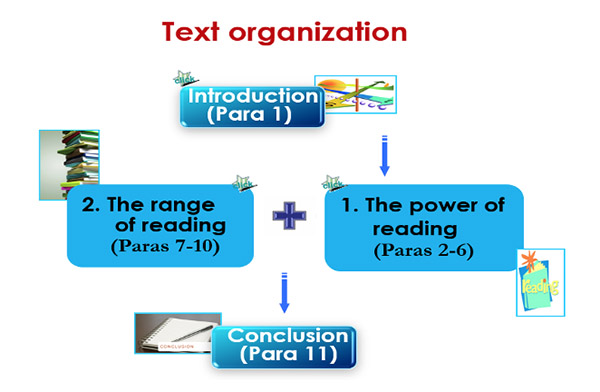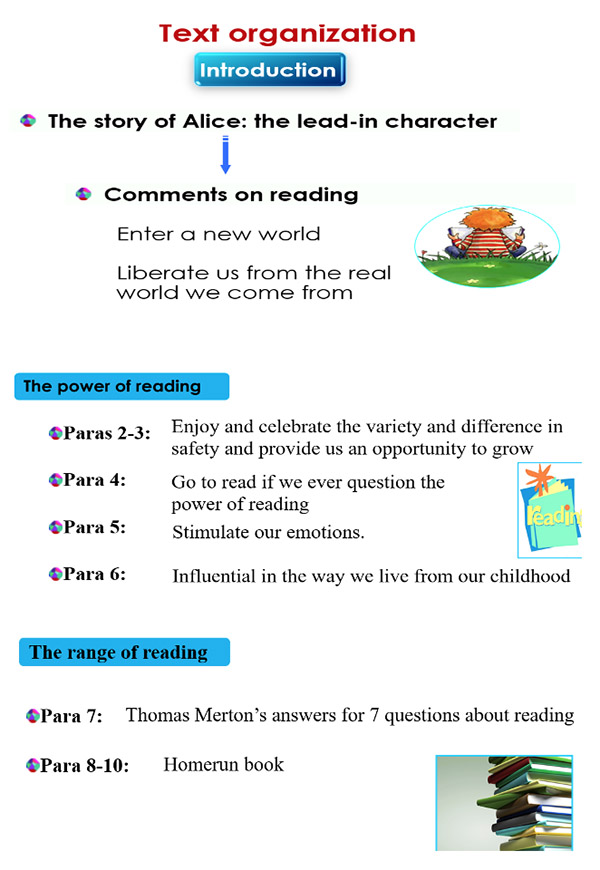Unit 2 A good read
 知识点一:Text Analysis: Danger! Books may change your life
知识点一:Text Analysis: Danger! Books may change your life
I. Warming up
1. Have you heard of the world-famous writers? Match each writer with his or her brief introduction.
2. Look at some pictures which provide clues about the books they are related to. Name the books and match their authors.
Tolstoy Agatha Christie
1) a Danish author, fairy tale writer, and poet noted for the children’s stories (H.C. Andersen)
2) an English poet and playwright, widely regarded as the greatest writer in the English language and the world's pre-eminent dramatist (W. Shakespeare)
3) a British crime writer of novels, short stories, and plays, best remembered for the 80 detective novels (Agatha Christie)
an American author and humorist, lauded as the "greatest American humorist of his age,” and "the father of American literature”. (Mark Twain)
5) a Russian writer who primarily wrote novels and short stories, also noted as a moral thinker and social reformer (Leo Tolstoy)
6) an American author and journalist who produced lots of work between the mid-1920s and the mid-1950s and a Nobel Prize winner (E. Hemingway)
II. Background
Reacting to the text
In an “opinion” piece of writing, whose primary aim is to persuade the reader to see something from the writer’s point of view, the writer is likely to make statements which are not objective. The reader is free to agree, or to disagree with these statements, especially when they are not backed up by examples.
III. Text analysis
Prediction:
Look at the title “Danger! Books May Change Your Life” and predict:
1. What do people think the word danger is intended?
I think it is used to get our attention. It is not likely that books—in general—can be dangerous. It’s like a road sign but not a real warning.
2. From what age do books influence readers?
From any age, really as soon as young children hear books being read to them or see the pictures in picture books. This could be when they are a few months or one or two years old.
3. Which kind of books might the passage be from?
Well, I think the writer is referring to books in general, not just fiction because the title seems to indicate the influence of reading on our lives.
Text organization:


Discussion:
Look at the statements from the passage and discuss the questions.
1. … when we pick up a book we are about to enter a new world.
Do you agree with this statement? Is this true of every book?
I agree with this up to a point, but it is not true of every book. You may already be very familiar with the world of some particular books. So although you might read them, they wouldn’t take you to a new world.
2. We’ll have experiences which are new, sometimes disconcerting, maybe deeply attractive, possibly unpleasant or painful, but never less than liberating from the real world we come from.
How can reading be a “painful” experience? In what sense does reading “liberate” us from the real world?
It is easy to imagine how reading could be a painful experience for some people: It depends on the book and on the reader’s background and personality. For instance, I can see that a story about bullying might be painful to read if you were bullied when you were a child – it would remind you of the experience of being hurt.
3. Reading books allows us to enjoy and celebrate this variety and difference in safety, and provides us with an opportunity to grow.
How does this idea contrast with the title of the passage? In what way can a book help us “grow”?
The word danger in the title contrasts with this idea in that reading is a safe experience. However, this is not a contradiction because books can affect our lives, and we can grow in our minds with a better understanding and enriched imagination when we meet a wide variety of people and different situations in books. This vicarious experience in reading is a safe way to grow mentally and emotionally.
4. To interact with other people’s lives in the peace and quiet of our homes is a privilege which only reading fiction can afford us.
Do you agree? Is fiction really different from other types of writing?
Well, I think this is true because in fiction we can interact with the characters, both positively (with characters we can identify with) and negatively (with characters we do not like or admire). But this doesn’t mean that we don’t interact with the writer in non-fiction.
Paraphrases:
1. Variety’s the very spice of life, / That gives it all its flavour …(para.2)
Spices are made from plants and added to food to give it its particular flavour or taste. This quote from Cowper’s poem means that variety gives life extra value and allows you to appreciate life in particular ways.
2. We learn to look beyond our immediate surroundings to the horizon and a landscape far away from home. (para.3)
This means that through reading we learn to look beyond our immediate experience or familiar environment, and therefore reading presents an alternative and more extended view of life.
3. …but whether we're enchanted or whether we feel excluded, our emotions are nevertheless stimulated.
Both those fascinating books and those that don’t seem to agree with us have strong influence on our emotions.
4. The English writer E. M. Forster (1879–1970) even hinted at a more mystical power which books possess over us.
To hint means something that you say or do to suggest something to someone, without telling them directly.
The sentence means the English writer E. M. Forster pointed out indirectly that books can magically dominate us.
5. …and have made it possible for me to get out of the confusion and meaninglessness of an existence completely immersed in the needs and passivities fostered by a culture in which sales are everything.
To be immersed in something means to become completely involved in an activity.
The sentence means that these books may free me out of the confusing and meaningless world in which people are totally involved in going after material enjoyment and have negative attitude toward life.
6. Whoever has read a novel in one sitting will always remember the pleasure and satisfaction which await us…
The phrase in one sitting means during one continuous period when you are sitting in a chair. It is usually used to describe someone doing something continuously with the eagerness to finish it as soon as possible.
The sentence means the people who are obsessed with a novel and finish reading it quickly will always remember the happiness and contentment the book offers them.
Summary:
Choose the best summary
1. The pleasure of reading: it suggests that every time you open a book, wonderful things can happen. You can get to know people from different countries and cultures in the comfort and safety of your own home better than you know your own neighbor.
2. The importance of reading: it refers to a lot of thinkers and writers who have tried to explain what the experience of reading actually means. It also quotes a lot of recent/on so recent novels which illustrate the power and range of reading.
3. Some ways of interaction between readers and the writer: The writer is esp. interested in fiction and the way in which, from an early age, it has the power to shape our lives by making us think about who we are.
Key: 2
IV. Reinforcement:
Discussion:
(1) The title of the passage is ironic. But can you think of any ways in which reading can be dangerous?
Well, it might be dangerous to read completely wrong information about something, if you read it without thinking that the writer might be wrong. For instance, reading out-of-date information about medicines and illnesses could lead you to take the wrong medicine which might make your condition worse. Or some things might be morally dangerous, for instance graphic details about violence and murders or pornography.
(2) Is there a special pleasure when reading in a foreign language? If so, what is it?
I think there are several kinds of pleasure in reading in a foreign language. There’s the pleasure of finding that you can understand something you thought was too difficult for you, so you become more confident. Also there’s the pleasure of reading about something from different points of view. There’s also the pleasure of finding out about other cultures. For many people, there’s the pleasure of getting access to information which may not be available in their own language.
